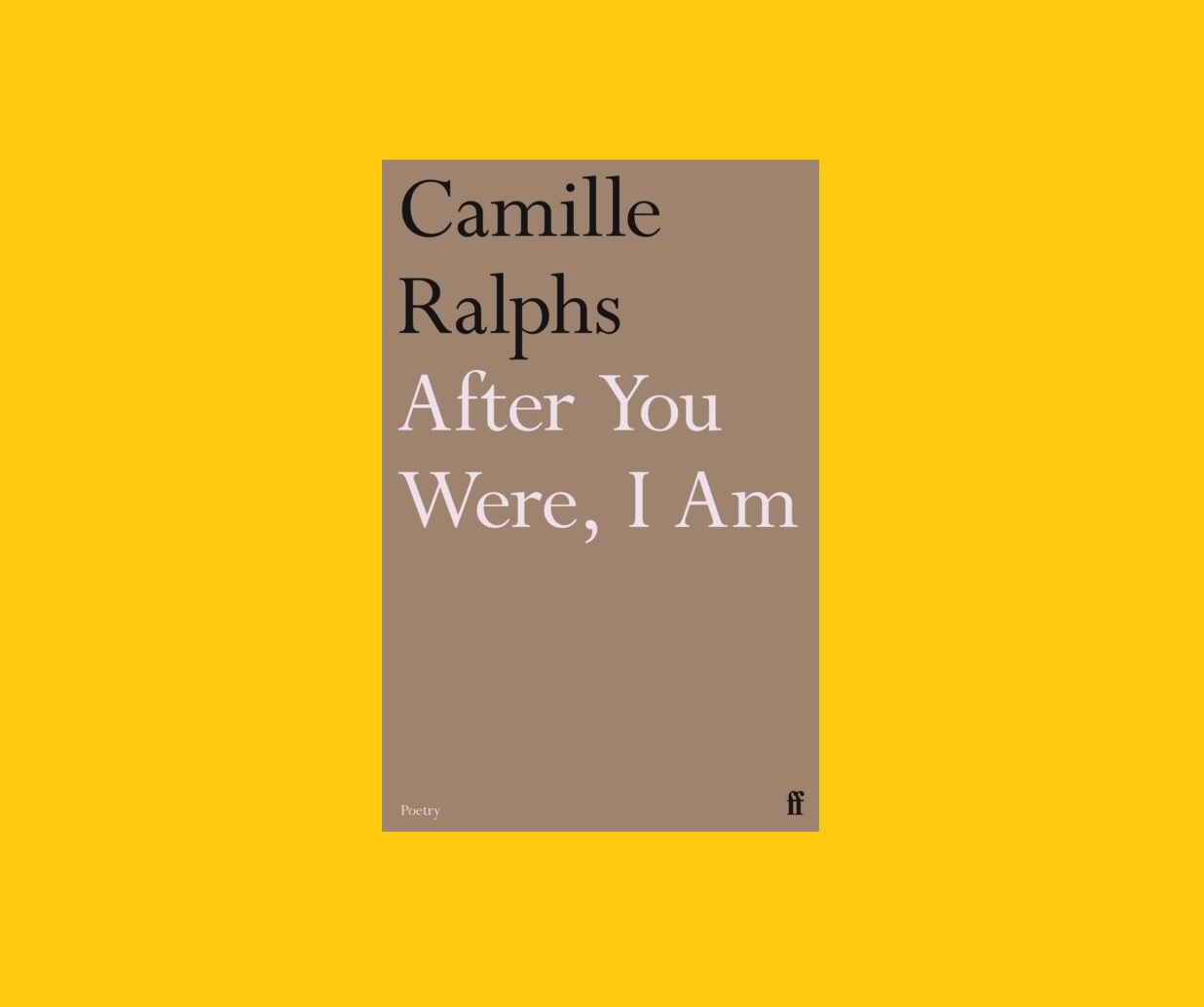‘In the beginning was the Word’: Camille Ralphs casts a spell.

Camille Ralphs | After You Were, I Am | Faber & Faber: £12.99
Reviewed by Andrew McCulloch
The epigraph of Camille Ralphs’ debut collection is from the Coptic Gospel of Thomas. Discovered in Egypt in 1946, this consists of 114 logia attributed to Jesus, some of which are found in the canonical gospels while others are closer to the thinking of the second century Gnostics, denounced as heretics by the Fathers of the Early Church. Gnosis – from the Greek gnostikos – was mystical or esoteric knowledge derived from direct engagement with the divine. Christian Gnostics saw Christ not as the Son of God but as an angel sent to teach men how to discover the divine spark within themselves.
This has an important bearing on Ralphs’ collection, whose three sections explore different ways of engaging with the divine – and the diabolical. The first, ‘Book of Common Prayers’, is a set of verses and responses that interrogate mostly traditional Christian texts. The third section, ‘My Word: From the Spiritual Diary of Dr. Dee’, dramatizes episodes from the life of the sixteenth century mathematician, astrologer to Elizabeth I, and owner of one of the largest libraries in Europe – another seeker of new knowledge in old writing. The sinister heart of the collection, ‘Malkin: An Ellegy in 14 Spels’, gives a voice to the thirteen Pendle witches, tried in Lancaster in 1612 (a year after the first performance of Macbeth), and reveals the darkness and cruelty of much religious extremism.
Ralphs’ title – After You Were, I Am – adapts John 8:58 (‘Jesus said to them ‘Verily, verily, I say unto you, before Abraham was, I am’’). The confusion of tenses points, perhaps, to man’s own involvement in the construction of his creator – even if, much of the time, this gets no further than imagining ‘something sizing up that endlessness’ or ‘what is left when the mind forgets itself’ (‘Wessobrun Prayer’). But more typical is a vigorous, metaphysical wit. Like Donne, Ralphs squeezes language for every drop of suggestion, meaning, and music. In ‘After Mechthild of Magdeburg’, verbal tipsiness overflows in delirious wordplay – ‘O moon mirabilis, unmirrorable mirrorball, O, you, most bottomless of wholes’, while the opening poem, ‘after George Herbert’, playfully subverts the original (‘The Call’), turning ‘Such a Love, as none can part’ – with appropriately Joycean relish – into ‘such an I will Yes as none can quote’. Enlightenment and despair are equally ecstatic: ‘beam yourself into us like/headlights through light-headedness’ (‘Veni Sancte Spiritus’); ‘why did my umbilicus, umbrella of the belly, not asphyxiate’ (‘Job 3:11-26’).
The monologues of the Pendle witches reveal the dark underside of religious zealotry, its suffering, semi-literate victims, ‘harelipped by snot and trussed/in naked sores’, a brutal reminder of the vicious cruelty it can conceal. Ralphs’ language here is more visceral than ever – ‘A Grosse five iron inches – /longue . . . you sink in like a grief’ – a standing reproach to the sophisticated theologies elsewhere, and a grim reminder of what is at stake.
In some ways, John Dee and Edward Kelley, his ‘scryer’ – a medium who claimed to be able to communicate with angels – bring together the orthodox Christianity of the first section (the Polish king insisted Dee’s ‘spiritual conferences’ were approved by the Pope) and the more occult beliefs of the witchfinders. Although the ‘graspy alchemy’ to which Kelley turned was ultimately discredited, the universal theory of material purity and spiritual enlightenment from which it derived was taken seriously at the time: Kelley was ‘as happy with his pessle/as at vesspers or our scrying table, with a missal’. In the end, however, abandoned by his accomplice, Dee returns to England to find his library destroyed: ‘Damb Eden, damb grammars of creation . . . Dam England. Dam Kelley. Damn me.’
With its pages of commentary and reference, the collection is, in a sense, an example of its subject – a miniature library, brought alive by Ralphs’ electric ability to inhabit its periods and personalities. This is a collection that steps bravely into the Holy row that has been blazing for centuries – and makes thrilling poetry out of the racket.
Reviewed by Andrew McCulloch
